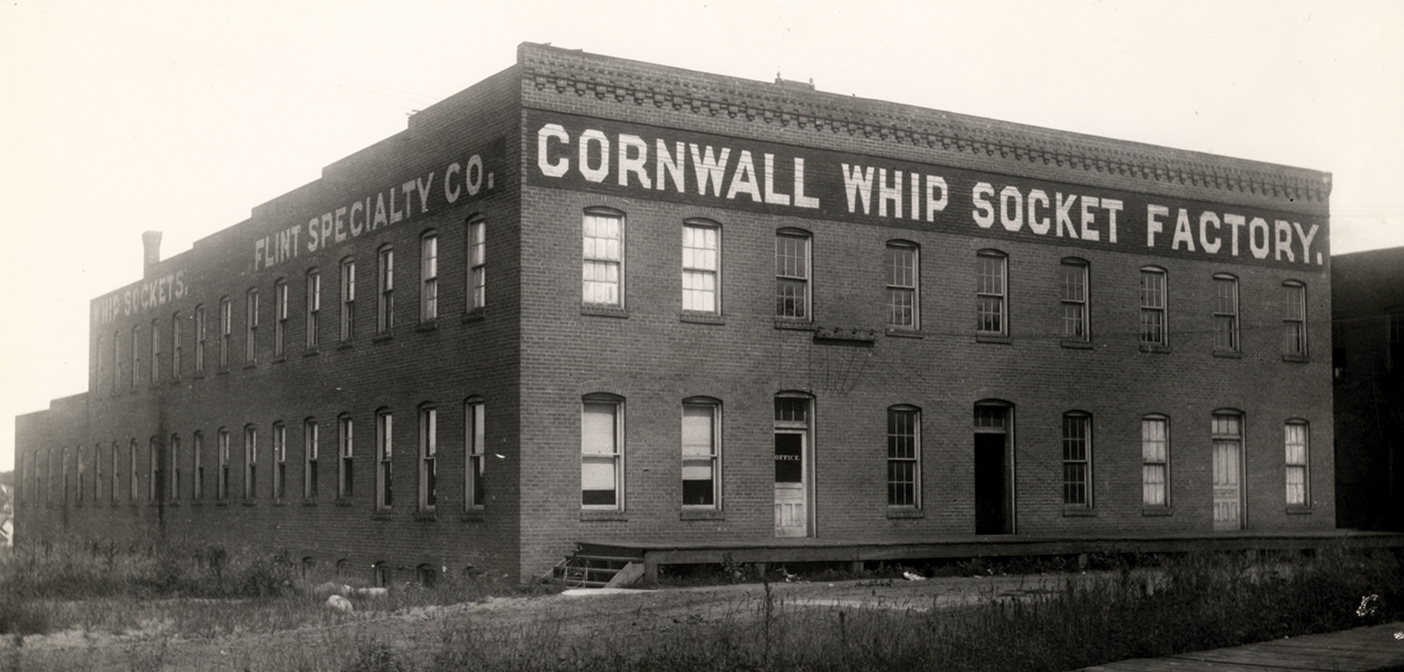Historically located just off Campus Drive (formerly Mill St.) near the campus of UM-Flint and behind the United States Post Office building, the Cornwall Whip Socket Factory, also known as Flint Specialty Co., was the world’s biggest supplier of whip sockets from 1905-12. (A whip socket is a wooden or metal holder, usually mounted on a carriage or buggy dash, to hold the whip that drivers used on their horses.) The company excelled after being purchased in 1901 by English immigrant, John Cornwall whereby he promptly changed the name and output.
After arriving with his family in 1868 at the age of 13, Cornwall started his professional life as chief clerk for the railroad at a depot in Flint. By 1894, Cornwall found himself, like seemingly every successful Flint businessman of that age, working for Durant’s Flint Road Cart Company. The next year, he married Jennie Milner and they moved into the mansion built by her father on Grand Traverse St. and W. 3rd St. (A house that still stands and that some consider to be haunted by the ghost of Jennie.)
In 1901, Cornwall, along with his sister Clara, purchased Flint Specialty Company and began the earnest business of whip socket manufacturing. His business steadily grew and the factory would be expanded three times in the next decade. He had this to say in volume 25 of The Spokesman and Harness World magazine in 1909, “the present year’s business has been the largest in the history of the concern. For the past five months, the plant has been in operation night and day.” In 1910, the company was producing over a million sockets a year. Naturally, as the automobile industry exploded, the whip socket factory was shut down; its product rendered obsolete.
In 1920, Cornwall became ill with Bright’s disease (a kidney disease today known as chronic nephritis) and retired from the business world. He died in August of the next year and was buried in Glenwood Cemetery, joined in 1943 by his wife.
The Cornwall Whip Socket Factory served as a successful addition to Flint’s rich vehicle history and did its part to earn Flint the distinction of being known as Vehicle City.
Photo courtesy of Detroit Public Library








































